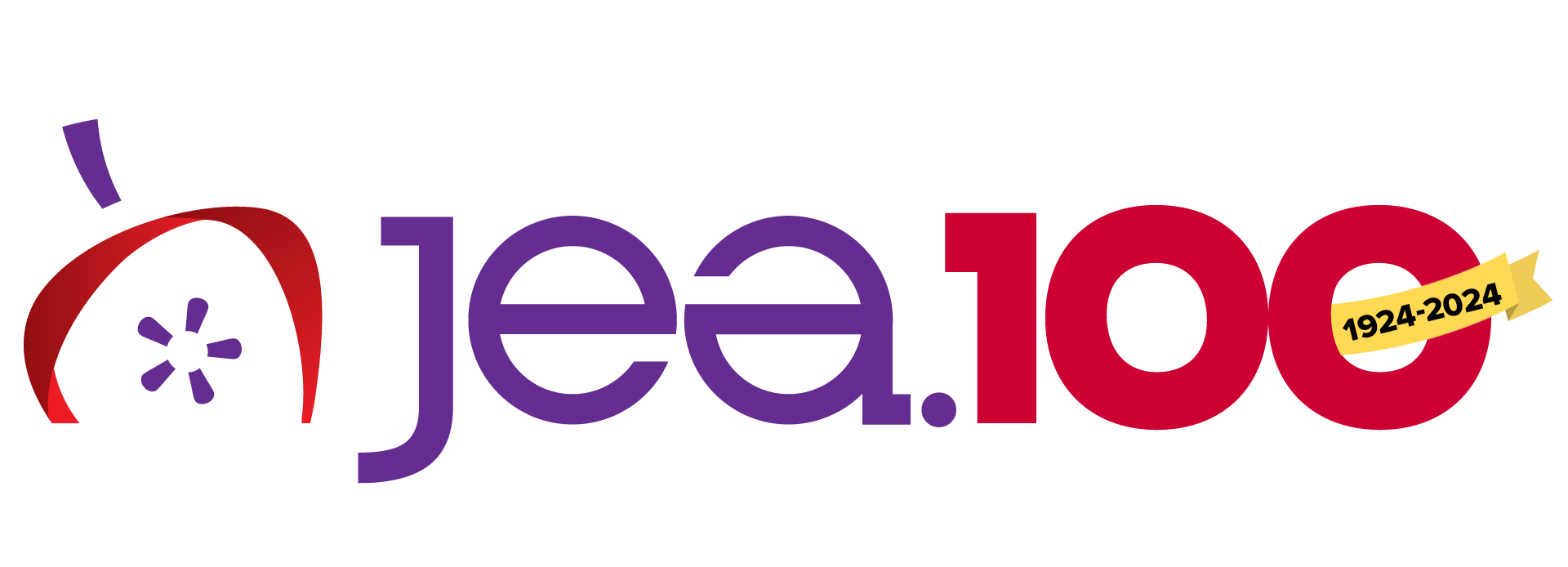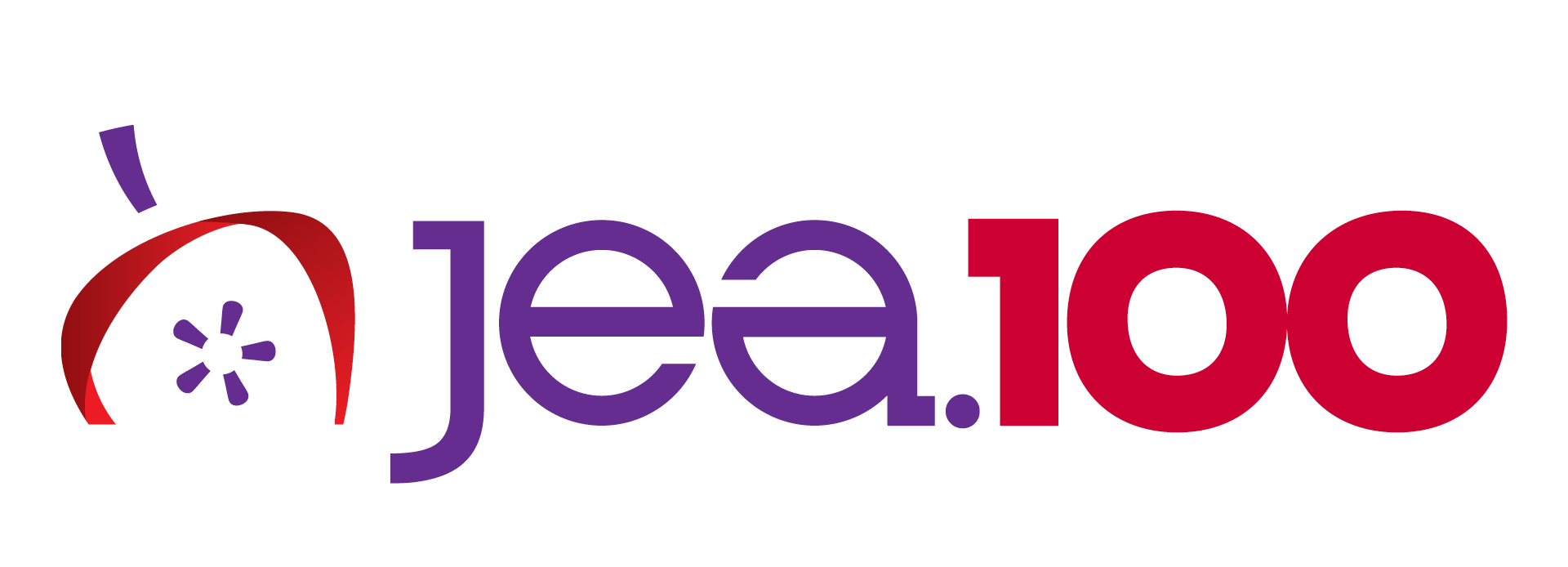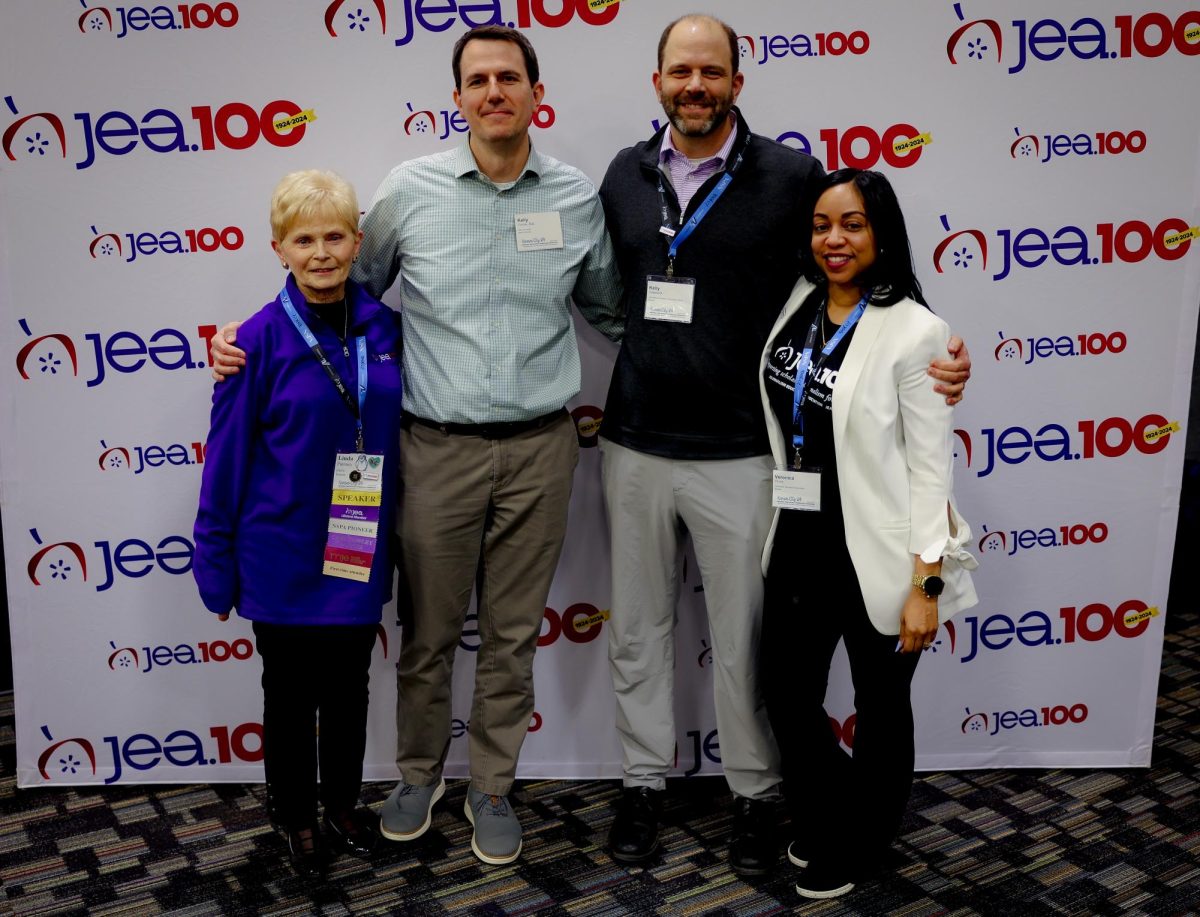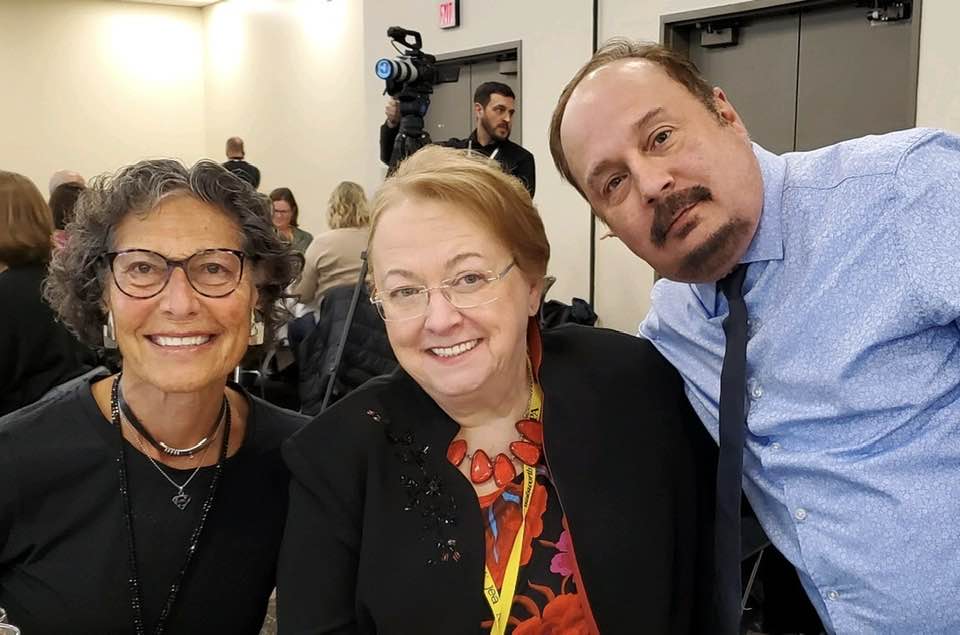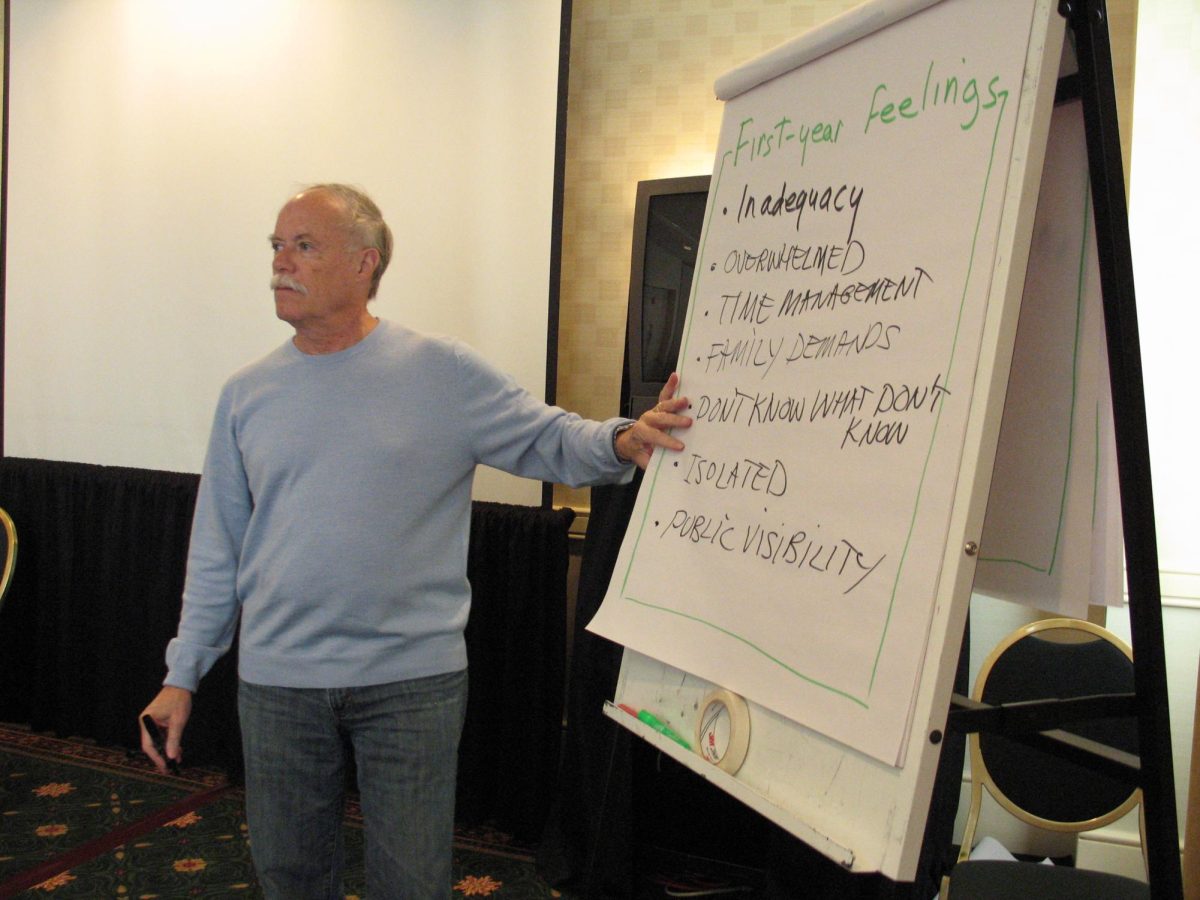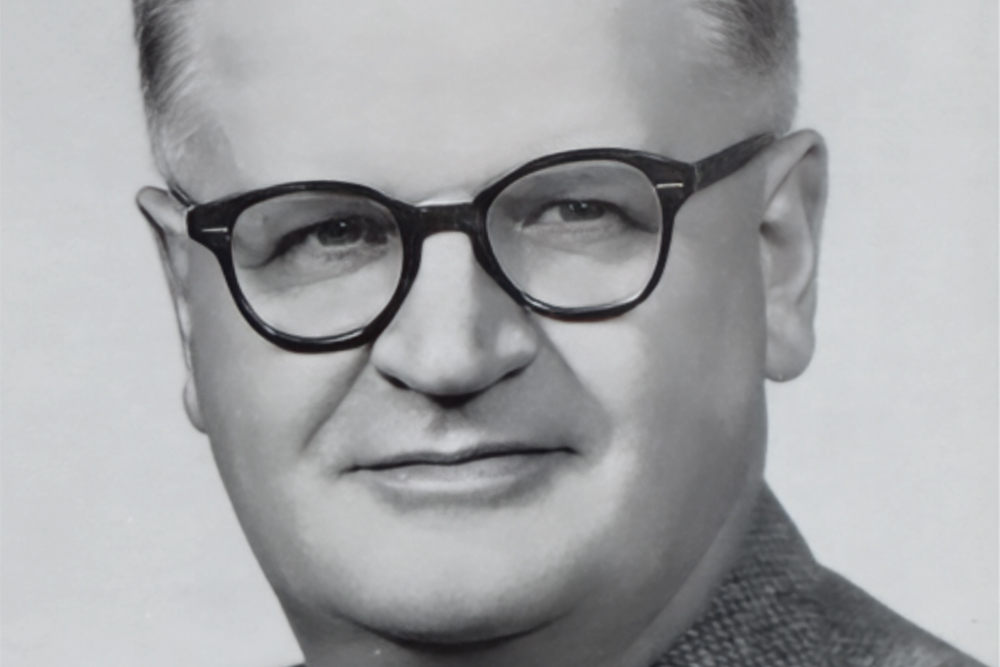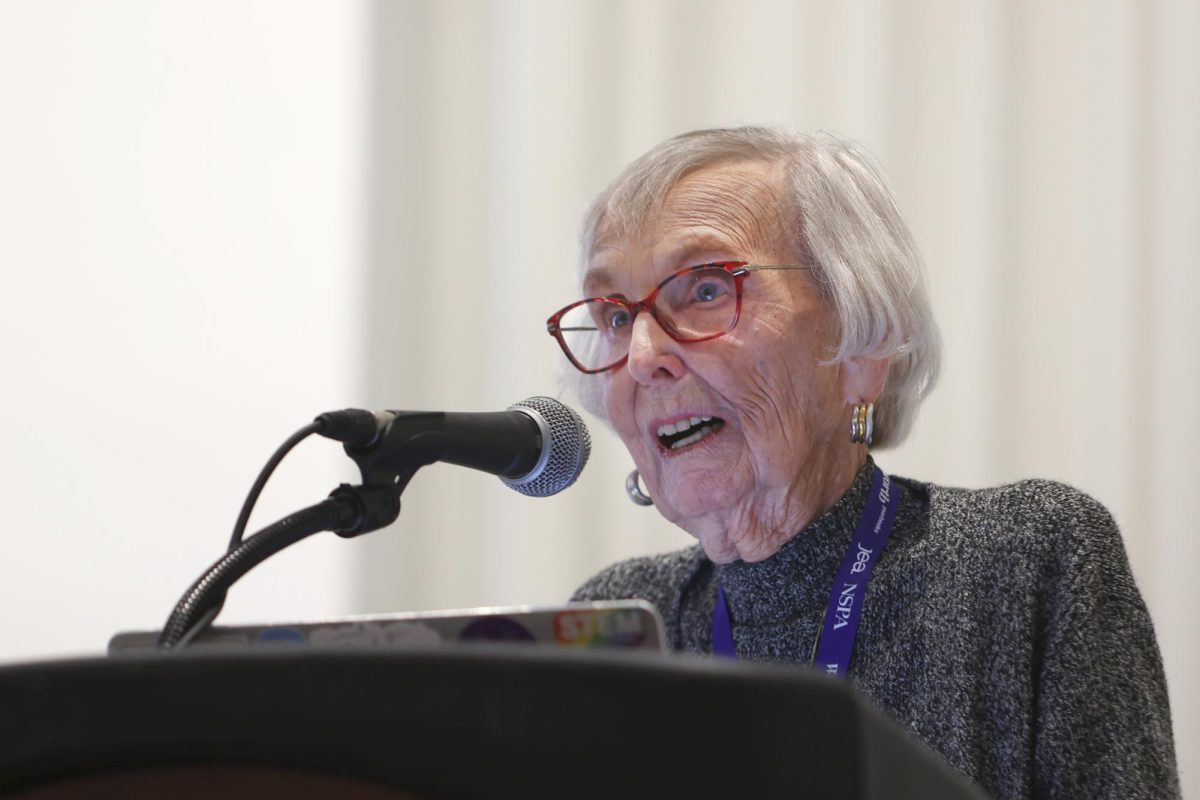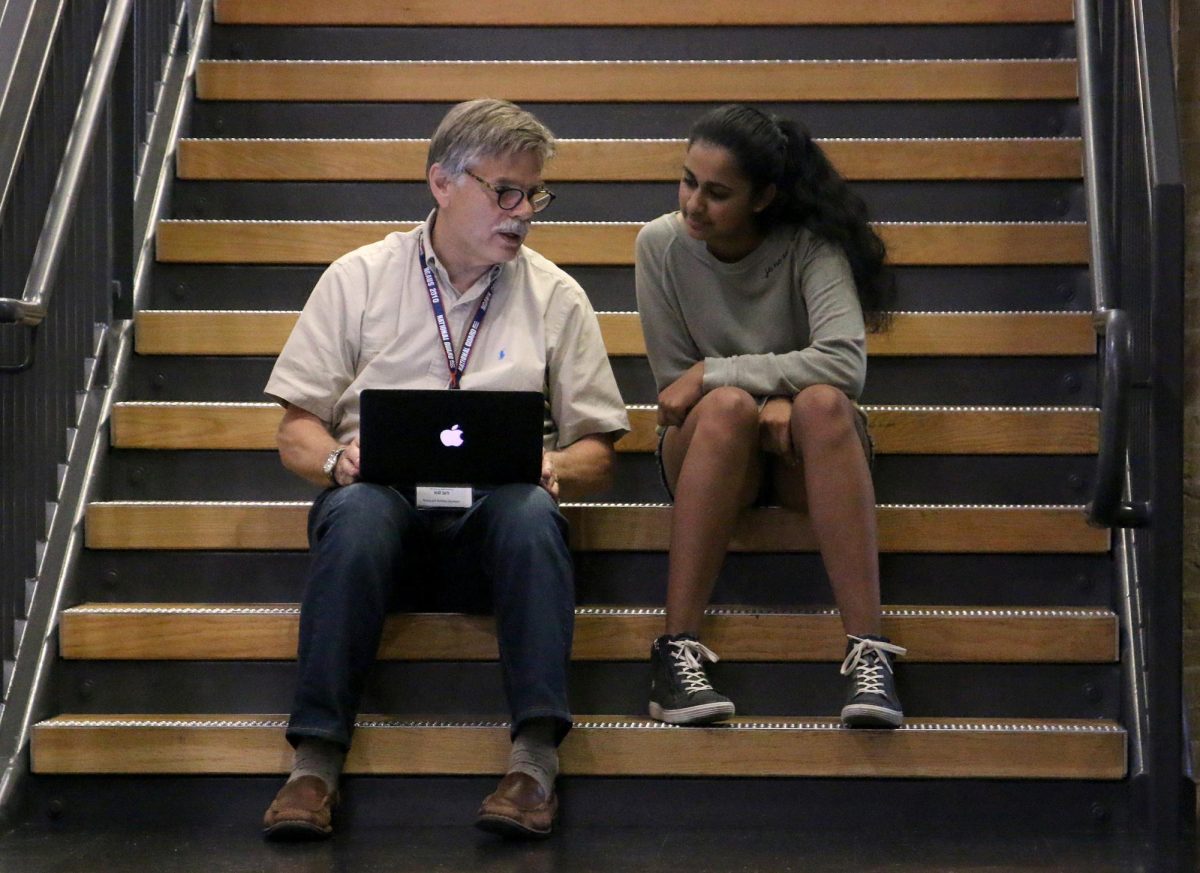Carol Lange is a believer and a doer. She believes in making a difference by making things happen, and for more than four decades she made things happen for scholastic journalism and for the Journalism Education Association.
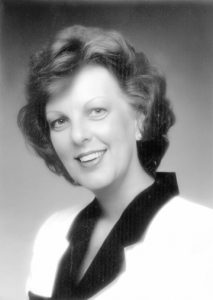
“Few can parallel her passion for scholastic journalism,” then JEA president Ken Siver, wrote in Lange’s 2008 nomination packet. “Fewer still can match the range and volume of her contributions to scholastic journalism and JEA.”
Her passion for journalism began when she was editor of her high school and college yearbooks, a member of the Mademoiselle Magazine College Board and U.S. Senate intern. As a teacher for 30 years in the Fairfax County Public Schools her passion for student journalism grew when she advised 13 yearbooks and 26 literary-art magazines.
In 1987 she founded the Virginia Association of Journalism Teachers and Advisers and in 1988 she was one of 15 teachers who developed an intensive journalistic writing approach to Advanced Placement English Language and Composition instruction. By 1990 she was director of Intensive Journalistic Writing Institutes and had trained more than 150 teachers to begin similar programs, emphasizing journalism as an academic subject.
Lange served as a JEA state Director, JEA Regional Director, JEA secretary, NewsWire editor, JEA/NSPA Washington, D.C., Convention local chairperson three times, Write-off judge, writer of broadcast curriculum and liaison to Radio and Television News Directors Foundation, creator of the Ryan White Award with the National Health Institute and director of a Writing Lab in Dubrovnik, Croatia. The list of her service seems endless. Siver describes her service to journalism groups this way.
“She swims in the alphabet soup of AEJMC, CSPA, SIPA, GLIPA, VAJTA, VHSL, SPLC, NSPA, NCTE DJNF, Q&S, RTDNF, NABJ,” wrote Siver. “Certainly, as convention coordinator she drew these organizations and others into taking a role in the conference.”
She has been recognized by those groups. She has received the Medal of Merit and Lifetime Achievement awards from JEA, Pioneer Award from National Scholastic Press Association, Gold Key from Columbia Scholastic Press Association, Hall of Fame from Virginia High School League and in 1991 she was selected as the Dow Jones Newspaper Fund National High School Teacher of the Year.
She developed a First Amendment research project for her 150 AP students as well as First Amendment curriculum for the Newseum, RTNDF and Prime Movers D.C. She was recognized by the American University Washington College of Law for her work with their Marshall-Brennan fellows to research and write First Amendment lessons.
In her retirement, she developed NIE monthly lessons for The Washington Post, media literacy lessons for use by librarians in Moldova (translated to Russian and Romanian), and with Alan Weintraut wrote and taught journalism curriculum for high schools in Gansu Province in China (translated to Mandarin) under the auspices of IREX.
“The Gates Foundation funded part of the program bringing in computers and printers for use by the librarians,” Lange said, “but there had to be local involvement, too. Part of the conditions of the program was for Moldova to provide heat in the buildings for the librarians. They were so proud of the furnaces and fire places they installed.
“We worked with 20 librarians the first session in Romanian and then 24 in the second session in Russian. Of course, we had interpreters but some of the younger librarians spoke English and they helped interpret, too.”
Her involvement in scholastic journalism on the state, regional, national and international arenas gives her a unique perspective to share what she has learned — 1. Seek training, 2. Communicate with other teacher-advisers, 3. Volunteer, 4. Give others the opportunity to serve and 5. Treat journalism as an academic subject.
“Her life’s foremost commitment has been to the service of journalism students and teachers,” wrote Alan Weintraut in her nomination packet. “For almost 40 years she has served as a teacher, adviser, mentor and friend, inspiring thousands of the brightest minds across the nation.”
Clearly, a believer in scholastic journalism and JEA, Lange said a strong focus on state and regional directors could help the organization twofold.
“Supporting the directors will help them build programs and activities in their areas and that should help schools who just can’t afford to travel to conventions,” Lange said ”Working with the State Department of Education to bring an academic focus to scholastic journalism would build awareness. Joining other organizations like National Council of Teachers of English might help those groups see how closely related we are.”
Clearly, a believer in scholastic journalism, its students and teachers, Lange continues to do what she can to positively grow journalism education.
